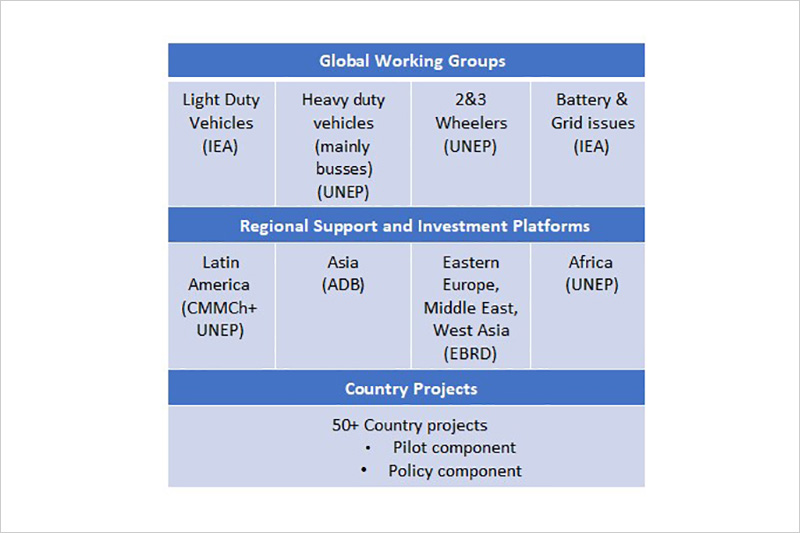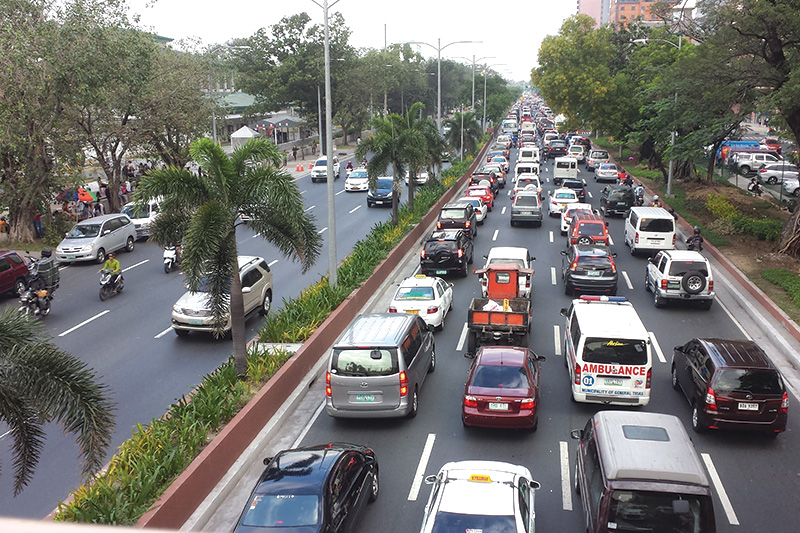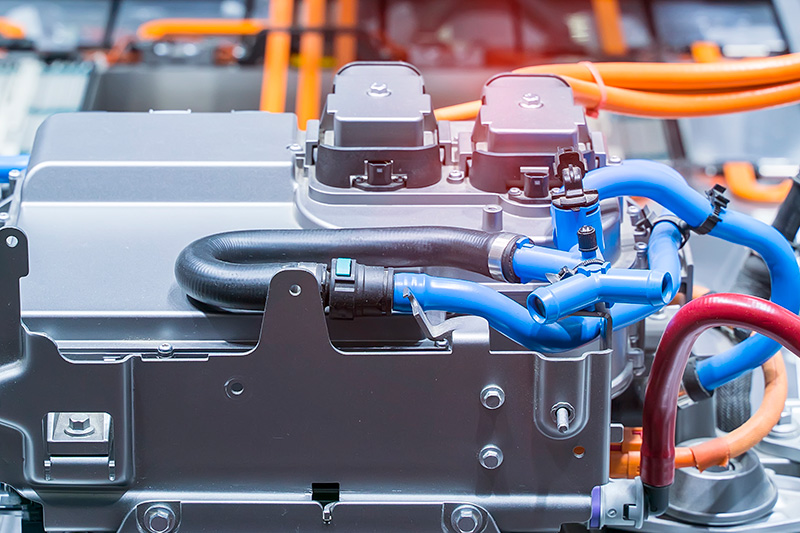GEF support for UNEP to support 17 further countries in the transition to electric vehicles

GFEI partner the United Nations Environment Programme (UNEP) is ramping up its support developing countries to transition to electric vehicles, as part of a new Global Environment Facility (GEF) project. The GEF CEO recently approved a new global electric mobility programme which builds on and expands GFEI’s support to countries around efficient and electric vehicles, with a particular focus on supporting countries to develop policies to promote low-carbon road transport.
The project will support 29 country projects in all regions – these projects will introduce pilot programs and national policies/ roadmaps for electric mobility. UNEP is implementing 17 of the 29 country projects (and two are co-implemented with the ADB and EBRD). This will take UNEP’s electric mobility support to over 50 countries and is a key part of the GFEI partnership’s work in supporting electric mobility in developing countries. The total GHG emissions reductions from the project are estimated at 170 million tons CO2.
All country projects receiving GEF funding follow a common approach that includes capacity building, the development of national e-mobility strategies, the design of e-mobility policies and regulations, and the establishment of e-mobility business models and finance schemes. This includes the piloting and demonstration of electric vehicles such as electric motorcycles, cars, buses and EV chargers. All projects comprise activities on the sustainability of e-mobility such as the establishment of regulations for collection, re-use and recycling of used EV batteries and the integration of renewable power for charging.
At regional level, four Support and Investment Platforms will be set up. The platforms will become the lead initiatives to support electric mobility in the regions by providing technical support, setting up a helpdesk, implementing a training programme, and providing investment platforms where countries and cities keen to introduce electric vehicles fleets will meet with technology providers and financiers to develop their electric mobility programs. UNEP will lead the Africa platform and co-lead the LAC platform; ADB the Asia platform; and EBRD the West Asia/ Eastern Europe platform.
At global level, four Global Working Groups will be set up. These working groups will develop toolsets for countries to support them in their transition to electric vehicle fleets. They will have representatives from knowledge institutions, government, international organisations, and the private sector. UNEP will lead working groups on heavy duty vehicles and 2&3 wheelers, and fellow GFEI partner the IEA on light duty vehicles and on battery & grid integration.
Rob de Jong, head of UNEP’s Sustainable Mobility unit, highlighted how this project builds on the ongoing work by GFEI across the world. “It is tremendously important to ensure that countries in Africa, Asia, the Middle East and Latin America are able to rapidly transition to electric vehicles” he said. “There are a whole set of policies and enabling infrastructure that will support this, and UNEP is uniquely placed to provide bring together stakeholders and support country projects. UNEP’s role as a GFEI partner, together with IEA, adds real value to this work. The inclusion of a wider set of vehicles – such as trucks, buses, and motorcycles, builds on GFEI’s expanded focus.”








